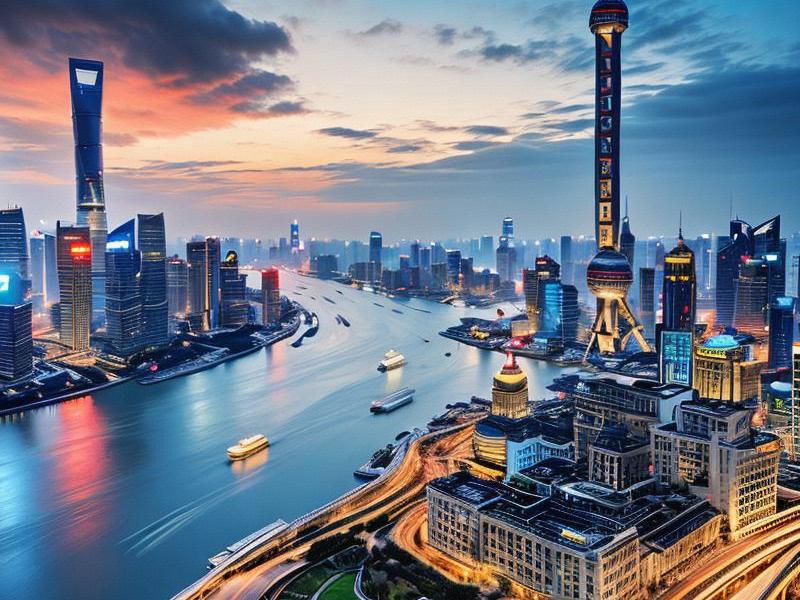
Shanghai, the largest city in China, is a vibrant metropolis that seamlessly blends the old with the new. Known as the "Pearl of the Orient," Shanghai is not only a significant economic hub but also a cultural melting pot, attracting millions of visitors each year. This article aims to provide an in-depth look at Shanghai's journey of transformation, its current status as a global city, and its future prospects.
Historical Background and Urban Development
Shanghai's history dates back to the Song Dynasty when it was a small fishing village. However, it was during the 19th century that Shanghai began to transform into a major port city. The opening of the Treaty Ports in 1842 following the First Opium War marked the beginning of Shanghai's rapid urbanization. The city became a center for international trade and commerce, attracting merchants from around the world.
The 20th century saw significant changes in Shanghai's urban landscape. The establishment of the International Settlement and the French Concession brought about a blend of Western and Chinese architectural styles, creating a unique urban environment. The Bund, with its iconic skyline of colonial-era buildings, stands as a testament to this period.
In recent decades, Shanghai has undergone rapid modernization. The city has expanded its infrastructure, developed new business districts, and invested heavily in public transportation. The construction of the Shanghai Tower, the tallest building in China and the second-tallest in the world, symbolizes Shanghai's ambition to become a global financial center.
Economic Hub and Technological Advancements
爱上海论坛 Shanghai is the economic engine of China, contributing significantly to the country's GDP. The city is home to the Shanghai Stock Exchange, one of the largest stock exchanges in the world. It is also a major hub for international trade, with the Port of Shanghai being the busiest container port globally.
The city has embraced technological innovation, positioning itself as a leader in digital transformation. Shanghai is a key player in China's digital economy, with initiatives such as the Shanghai Free-Trade Zone and the Zhangjiang Hi-Tech Park fostering innovation and entrepreneurship. The city is also at the forefront of artificial intelligence, big data, and other emerging technologies.
Shanghai's economic success is not limited to traditional industries such as finance and trade. The city has also developed a strong presence in sectors like tourism, education, and culture. The Shanghai Expo, held in 2010, showcased the city's ability to host large-scale international events and attract global attention.
Cultural Heritage and Modern Lifestyle
Despite its rapid modernization, Shanghai has managed to preserve its rich cultural heritage. The city is known for its blend of traditional Chinese culture and Western influences. The Yu Garden, a classical Chinese garden, and the Yuyuan Bazaar, a bustling marketplace, offer a glimpse into the city's historical past.
Shanghai's cultural scene is diverse and vibrant. The city is home to numerous museums, art galleries, and theaters. The Shanghai Museum, renowned for its collection of Chinese art, and the Power Station of Art, a contemporary art museum, attract art enthusiasts from around the world.
上海龙凤419贵族 The lifestyle in Shanghai is dynamic and cosmopolitan. The city boasts a vibrant nightlife, with bars, clubs, and restaurants offering a wide range of experiences. The Bund and Nanjing Road are popular destinations for shopping, dining, and entertainment. Shanghai also has a thriving food scene, with a mix of traditional Shanghainese cuisine and international flavors.
Urban Challenges and Sustainability
As a global city, Shanghai faces several urban challenges. The rapid population growth and urbanization have led to issues such as traffic congestion, housing shortages, and environmental concerns. The city has implemented various measures to address these challenges, including the development of public transportation systems, smart city initiatives, and green spaces.
Shanghai is committed to sustainable urban development. The city has set ambitious goals to reduce carbon emissions and promote renewable energy. Initiatives such as the construction of green buildings, the expansion of public transportation, and the promotion of electric vehicles are part of Shanghai's strategy to crteeaa more sustainable future.
Global Influence and Future Prospects
上海私人品茶 Shanghai's global influence is evident in its role as a hub for international diplomacy, trade, and culture. The city hosts numerous international organizations, multinational corporations, and cultural exchanges. The G20 Summit, held in Shanghai in 2001, and the Belt and Road Forum, held in 2017, highlight the city's importance on the global stage.
Looking ahead, Shanghai is poised for continued growth and development. The city is investing in infrastructure projects such as the Shanghai-Suzhou-Nantong Yangtze River Bridge and the Shanghai Disney Resort expansion. These projects aim to enhance the city's connectivity, attract more tourists, and boost the local economy.
Shanghai is also focusing on innovation and talent development. The city has established research institutions, incubators, and innovation parks to foster technological advancements and attract global talent. By prioritizing education and innovation, Shanghai aims to maintain its position as a leading global city.
Conclusion
Shanghai's journey from a traditional port city to a global economic and cultural powerhouse is a testament to its resilience and adaptability. The city's rapid urban development, technological advancements, and rich cultural heritage make it a unique and dynamic metropolis. As Shanghai continues to grow and evolve, it remains a symbol of China's progress and a beacon of innovation and culture for the world.
In conclusion, Shanghai's story is one of transformation and success. The city's ability to blend tradition with modernity, address urban challenges, and embrace sustainability sets it apart as a model for other global cities. As Shanghai looks to the future, its vision of innovation, culture, and global influence will undoubtedly shape the city's destiny and contribute to the prosperity of China and the world.
